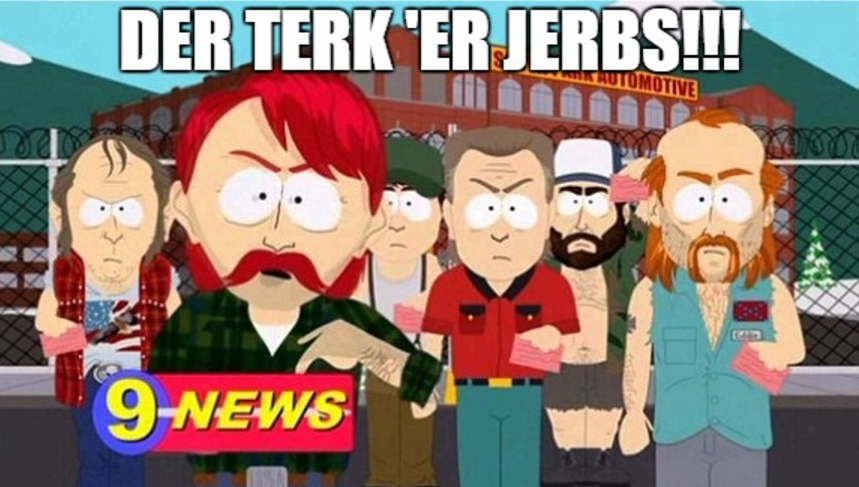
Stay Savage








"Teach me to breathe, don’t let me think” -Every Time I DieIn 1868, the United States and the Lakota Nation of the Sioux Tribe entered into the Treaty of Fort Laramie, in which the majority of the provisions served to divide the Black Hills, a land sacred land to the Lakota people, among the Sioux. It also committed to the notion that the land would not be settled by whites. Also included in the Treaty was the condition, “In order to insure the civilization of the Indians entering into this treaty, the necessity of education is admitted…” [and] they {the reservation settlers}, therefore, pledge themselves to compel their children, male and female, between the ages of six and sixteen years, to attend school, and it is hereby made the duty of the agent for said Indians to see that this stipulation is strictly complied with.”* Thus, the kids were to learn English and Christianity and grow into civilized members of society.However, prior to 1868, many in the Lakota protested signing this treaty. There were voices of dissent who’d called into question the integrity and intention of the U.S. Government. Unfortunately, these critical voices were disregarded and silenced.Many were told to just go along with the rest of the tribe. After all, “‘civilization’ is a good thing, right? Being modern is awesome. The whites are giving us our land and bringing us into the fold of a new society! What could go wrong. We won’t be “savage” anymore!”Well, anyone who’s read a book or attended a history class in the last 75 years knows that the “savages” got fucked—royally. The effects of which the Lakota people endure to this day.This is the same kind of blind, groupthink we are experiencing right now. The veteran community are all jumping off the proverbial cliffs and no one is raising their hand and asking “why?”Fast forward to the election of 2016. According to a 2014 Pew Research report**, America is becoming increasingly politically polarized. As we’ve seen in post-election America, that’s not ending anytime soon. During the election, everyone was falling in line with one candidate or another. No one was looking at things from a perspective other than their own. The public locked themselves into intellectual “echo-chambers,” only reading and seeing that which fed their own confirmation bias. Friends and family were blocked if they harbored a differing opinion. One’s own version of the “truth” was based solely on what they found in these “echo-chambers,” which enticed people to amplify their vitriol to the point where they had to be the loudest, smartest, most well-informed person in the room at all times. Cars were vandalized and people were assaulted just for wearing the wrong hat or campaign button. Every opposing view was, and are now, disregarded as “fake news.”Now, I find myself taking a critical look at the veteran community at-large. It’s a group to which I belong and I have a vested interest in how we are perceived by society (you know, that thing into which we’re supposed to integrate and lead?). There is no shortage of acrimony coming from us, to be sure. During the election, conventional wisdom held the veteran community is majority Conservative Republicans and was upheld by the number of veterans who came out in droves to support Trump. Social media was full of people being called "libtards” and having their perspectives disregarded (to be fair, the absurd response was usually some kind of “-ism” learned in a sociology class that very afternoon). Veterans who’d deployed were now experts in foreign policy and all things political and any debate to the contrary was seen as unpatriotic, un-American, or hatred of veterans.There is a herd-mentality within the veteran community. It’s full of silly platitudes like “if you won’t stand for us, you’re welcome to stand in front of us” and “if you don’t support the military, then just get out.” Veterans often rely on identity politics, starting each sentence with, “As a veteran…” to add weight and credibility to their usually erroneous arguments. They make false equivalences about veteran issues vs everyone else’s issues, celebrity prestige and military service, which I did too 3 years ago*** and I’d be a liar and a hypocrite if I said I didn’t engage in all of the above about a decade ago. However, I’ve taken a long, hard look at myself and learned better ways to go about things. I think the veteran community needs to do the same, especially if we’re supposed to be leaders in society.If you gain nothing else from this article:-If you, as a rational being, capable on your own of logic and reason, can take all of your beliefs, opinions, values, and principles, put them in a little box, and label them “conservative” or “liberal,” you are weak-minded and intellectually lazy.-That said, politicians make a living exploiting the above as being the rule, rather than the exception and encouraging people to restrict themselves, and their understanding of politics, based on an arbitrary title. They say “I am a conservative/liberal because I believe X.” It’s so much more convenient to just fall in lock-step with the blanket title, (and its elucidation) than explain your views or think for yourself. However, over time, this mindset forces people into corners where they begin to say “because I am a conservative/liberal, I believe X.” The two statements are different, yet both are equally egregious in their implications.The conservative/liberal ideals classification is one of the few things which actually trickles upwards. The political elites, who have staffers working for them tasked with observing the social trends of political ideologies, will pander to those holding these ideals in order to retain their seat at the top of the mountain. Maybe this is why today’s conservatives have more in common with classical liberalism than they did even 50 years ago.Politicians, as they should, change with the public. However, the more extreme the public gets, the more extreme their elected officials become, which leads to the implementation of more extreme policy, leading to even more extreme disagreements and protest.This also leads to people blindly following and supporting candidates without knowing any of their stances on any one particular issue. I asked almost 200 people following the election about their platforms, and I was hard-pressed to find any Hillary supporters who could name one stance she had during her campaign. The Trump supporters (whom I identified by a lack of streaming tears on their faces) were no better. The most common reply was, “Because he’s going to make America great again!” Thus, the 2016 election validates my point: people use their ideology to steer their decisions instead of thinking critically or paying attention to issues or policy, getting behind symbolic issues rather than things which will impact them day to day. This is also why most people are “single issue” voters, meaning that unless it affects them or theirs directly, they don’t care about an issue.Veterans, brothers, sisters— let’s stop falling into this silly-ass paradigm. For a community who likes calling ourselves “sheepdogs,” we sure like to act like a herd of sheep on occasion. We must break out of this ignorant mentality. We have been making amazing strides to separate ourselves from the protected class of victimhood and now we need to stop jumping into the battlefield of political debate with a mag full of blanks and no BFA. If we want to act like being a veteran sets us apart from the rest of the drones, why don’t we do it by refusing to be stooges to some outdated, black and white cliche?Here at OAF Nation, our mission statement is, “to motivate and cultivate the warrior class by raising morale and inspiring critical thought.” That’s where our motto “We stand alone together” comes from. It isn’t some victim-class bumper sticker, it means we set ourselves apart as thinkers, innovators, philosophers, and we band together in challenging the status quo of the veteran community and to elevate it to the greatness it's capable of achieving. That’s the way it’s always been. The way we go about it has definitely evolved over the years, but our goal is still the same. We want to crush stereotypes and preconceived notions of what it means to be a veteran. We don’t want to be the guy in the “infidel” shirt, screaming at some kid at Starbucks and we don’t want looks of pity when someone finds out we served. This isn’t veteran bashing (I’m sure to be accused though), it’s wanting to BETTER for our beloved community. No one is going to do it for us.Here’s a few things to keep in mind that can help us reach our objective:• Question why you believe the things you do. Do you do it because you genuinely feel it’s right and true (backed by sound evidence) or is it a byproduct of some external factor? Introspection and actual self-realization are hard, but we’re used to doing hard shit, right?• Question the people in positions of authority. Feel free to pick apart every single word they say and ask “why?” This gets people in trouble in conventional military settings, but in the workplace, classroom, and church, “why” should be an absolutely valid question one would be all too happy to answer. If someone refuses, they don’t know or they’re hiding something.• When you read something, do you ever question it as bullshit? (Yes, even THIS) Read between the lines. Identify the thesis. Identify the source. Who funds them? It’s simple reading comprehension that can help you out.• Are you beginning a sentence with “as a veteran” to add weight to anecdotal evidence, or are you using it to debunk an incoming generalization? The difference matters. Using your “vet card” when someone says “all veterans are ____” is acceptable. Using the fact that you’re a vet as a valid source for your expertise on geopolitical instability? Not so much.Bringing it home: don’t be a corporate-news puppet (or Young Turks or InfoWars). Don’t claim to be informed because you read something on Facebook. Don’t blindly believe your friends. Don’t cite memes as sources. Don’t discount the arguments of others just because they believe differently, make them back it up and you do the same.Think for yourself, question everything, don’t be scared, set the example, and when it comes time to sign that dotted line with everyone else, Stay Savage.-Grifter* Article VII, Treaty of Fort Laramie, 1868.** “Political Polarization in the American Public: How Increasing Ideological Uniformity and Partisan Antipathy Affects Politics, Compromise and Everyday Life.” Pew Research Center, Washington, D.C. (June 12th, 2014).*** Grifter, “When the Music Stops” OAFNATION, March 10th 2014.
Written By Johnny "Grifter" Peddicord
February 28, 2017









